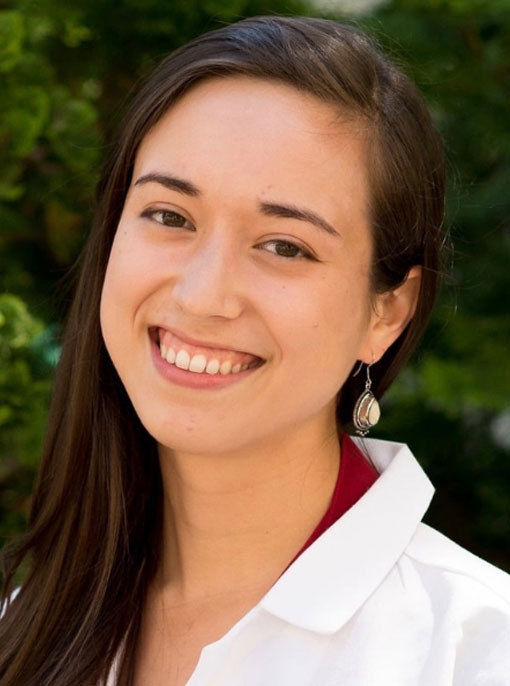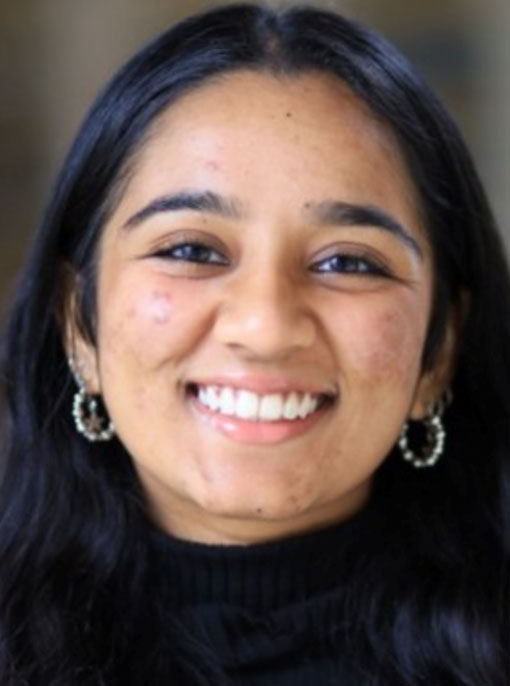After earning an English degree from Duke a decade ago, Jocelyn Streid, M.D., M.P.P., spent two years in Malaysia studying the role of ritual and spiritual practice as a mechanism for compassion renewal in cancer care. Now a resident anesthesiologist in Boston, Streid will speak at Duke on Saturday, April 15, as part of the Duke Humanities in Medicine alumni speaker series.
Organized by the Duke student group Humanities in Medicine (HuMed) Celebrations, the annual talks feature alumni innovating at the intersection of medicine and humanities. Streid’s talk, titled “Compassion Fatigue and Compassion Renewal: A Theological Approach,” will explore how she taps into her background in English and divinity studies, as well as her global health experiences, in her work advocating for end-of-life care.
Below, Streid and Trisha Gupta, a Duke undergrad majoring in economics and global health and one of the lead planners of the event, share some thoughts on the upcoming event and other ways students can become involved in exploring the interrelationship of medicine and the humanities.
Dr. Jocelyn Streid

As an undergrad you studied abroad in India, China, and South Africa. Which of these was the most meaningful memory in your undergraduate global health experience?
Streid: When I spent a summer at a rural South African hospital, I was with a young boy as he died. He had arrived the night before with a systemic infection and by morning he was rapidly decompensating. Despite the team’s best efforts, they could neither halt his disease process or control his symptoms. The boy died afraid and in pain. His death was a tragedy, but the way he died was an injustice. I think of him often. He taught me that poverty changes not just how people live, but also how people die. Pain control, hospice access, end-of-life counseling, caregiver support programs -- disparities prevail across all these realms.
What is the most powerful way in which your Duke English major experience shaped your post-graduate Global Health work?
Streid: I am forever grateful to my thesis advisor Priscilla Wald and my major advisor Thomas Ferraro, my mentors in the English department. They taught me how to read not only traditional texts but also the cultural narratives all around us. They taught me how to read closely, carefully, and with an eye for paradox, play, and beauty.
The hospital is full of stories. There are the stories patients and clinicians tell each other and the larger stories of health, disease, and death that our society tells all of us. If I can listen out for these stories, pay close attention to their cadences, characters, and plot twists, then I will be a better doctor for it.
Considering you pursued an MD/MPP at Harvard after Duke, how do you see global health and/or public policy fitting into your post-residency life?
Streid: Some of the pathologies my patients suffer are diseases of the body: the cancer corrupting their cells, the arrhythmias interrupting their heart. But many, many of the pathologies are social: poverty, homelessness, institutional racism, structural inequality, medical expenses beyond their reach. These systemic pathologies write themselves on the bodies of my patients, manifest themselves in delayed care, preventable illness, and loss of dignity amid sickness and suffering. We do what we can as clinicians, but we also need to do what we can as policy makers, advocates, activists, and change-makers.
My own interests are in palliative care, shared decision-making, and serious illness communication. End-of-life outcomes are shaped by socioeconomic, cultural, and governmental forces inside and outside the hospital. In order to re-imagine the systems of care we deliver to our sickest patients, I need to lean on the skillsets I learned and the people I met not just in medical school, but also in my global health and public policy training.
Trisha Gupta

Aside from academics and internships, one of your biggest involvements in undergrad is in Duke ASEAN (Association of Southeast Asian Nations). How has your ASEAN involvement fed into your interest in global health?
Gupta: My involvement is Duke ASEAN has motivated my interest in valuing and placing emphasis on varied perspectives within academic settings, especially in global health. The events we have hosted within Duke ASEAN have shown me that is it imperative to have discourse with people who come from backgrounds different to my own in order to broaden my scope of knowledge and approach problems from more than one perspective. I strongly believe in the ability of representation among teams and coworkers to inspire innovative solutions, and this extends into the field of global health. Duke ASEAN has also taught me certain skills, such as planning and collaboration, that are essential in healthcare.
Dr. Streid and you have in common that you have spent significant portions of your life (so far!) living & volunteering abroad. If you could ask her a question about her career trajectory, what would you ask her?
Gupta: I would ask her whether/how the places she has lived and worked in have impacted how she chose to use her academic background in her career today. Were there any conversations or opportunities in these places that motivated her to choose the trajectory she chose? Does she see herself returning to work outside the United States at any point of her life, or does she believe she can make the most impact while staying here?
Lastly, you've been involved in Duke Humanities in Medicine (HuMed) for almost a year now. What is the biggest takeaway from your involvement in this organization and what do you see as your role in the club moving forward?
Gupta: My biggest takeaway from the club has been that interdisciplinary learning across medicine and the humanities can take place in multiple forms, and that my interests lie within this intersection. As a student studying economics and global health, I hope to create connections between data and health that can positively impact policy for healthier populations. The speakers we have hosted so far have similarly integrated their humanities background with health and medicine in creative ways, all with the aim of creating healthier, more sustainable communities. These speakers have been incredibly inspiring for me to hear. I see my role in the club moving forward as a member who will continue to help finding qualified and impactful speakers, while also helping on the marketing end to ensure the Duke community can benefit from our events.



